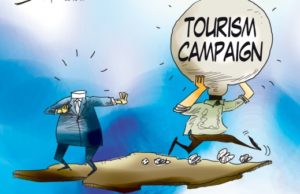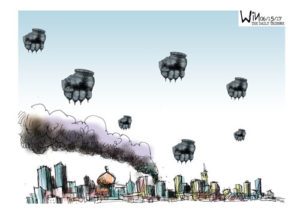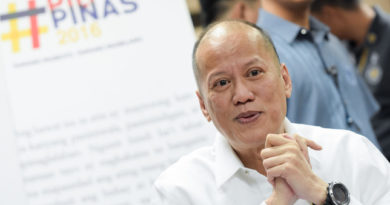As UK prepares to negotiate with EU
In about a week, the United Kingdom (UK) opens negotiations for its exit from the European Union (EU) as its voters decided last June 8, 2016. UK Prime Minister Theresa May of the ruling Conservative Party had called for parliamentary elections last week, hoping that her government would have a stronger support as it sought the best possible conditions for exit with the EU in Brussels, Belgium.
The election results, however, were not as she had expected. May’s Conservative party lost its majority in Parliament. From 330 seats before the election, it now has only 318, well short of a majority of 326. May now has to form some kind of coalition government with Northern Ireland’s Democratic Unionist party. Far from her hope of giving her a stronger voice in talks with the EU, the election has considerably weakened UK in the coming talks.
Prime Minister May’s loss of support has been attributed to several factors, including the recent terrorist attacks in Manchester and London, which reflected on the government’s ability to maintain order and security. There could also be a weakening of the strong anti-EU thinking that led to Brexit in June, 2016.
Recent elections in various European countries have rejected inward-looking and separatist movements like those of Marine le Pen in France, which elected instead the young pro-EU Emmanuel Macron. The leading nations of Europe – Italy, Germany, and France – have joined forces in a new alliance with China to carry out the goals of the Paris Conference Agreement on Climate Change, after US President Donald Trump unilaterally rejected the agreement. In the UK itself, Scotland disagrees with Brexit, seeking to maintain its ties with the EU.
Here in our part of the world, we value our unity with our fellow Southeast Asian states in the Association of Southeast Asian Nations (ASEAN). We are seeking to widen our world outlook with closer ties with China and Russia, which we have long neglected in our foreign relations. We have an increasingly inter-related world of nations and other organizations, united in their efforts for development and progress and in their hopes for peace.
In a few days, the UK will start negotiating with the union of 28 European countries in the EU. The recent election has weakened, instead of strengthened the UK as Prime Minister May had hoped for the coming talks. It may have been a sign that the British people may not be all that determined, inflexible, and unwavering in wanting to leave the EU, but see the need to still live and work closely with the rest of Europe and with the rest of the world.
The door is “always open” for the UK to remain in the EU, France President Emmanuel Macron said.














